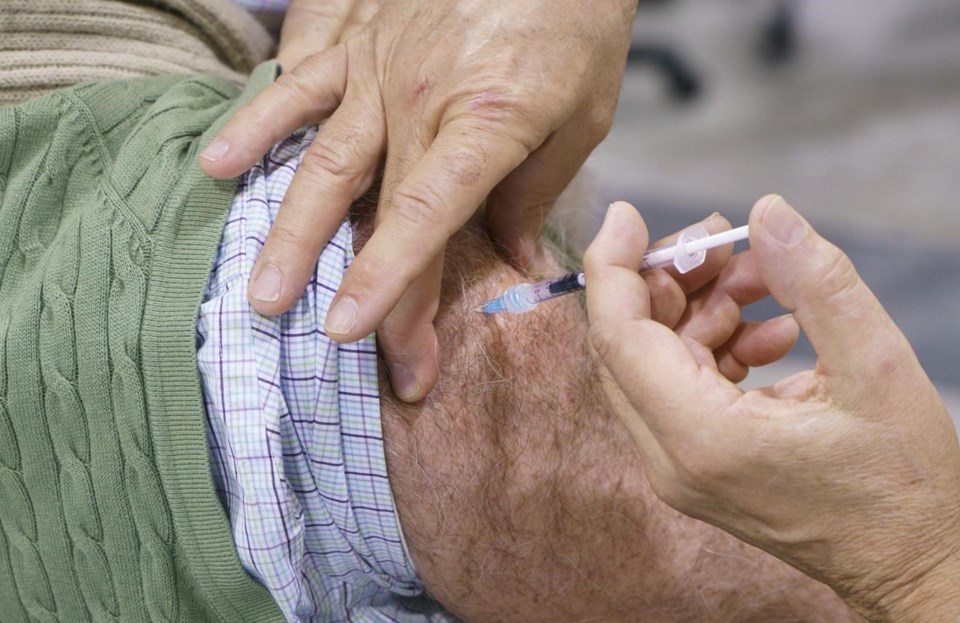VANCOUVER — Most residents of First Nations communities in British Columbia have received at least one dose of COVID-19 vaccine, but many Indigenous people who live outside of those areas are still waiting.
Over 30,000 vaccinations have been administered in Indigenous communities, representing about 54 per cent of residents of reserves, said officials with the First Nations Health Authority at a news conference Thursday.
Acting chief medical officer Dr. Shannon McDonald said about 100,000 more people identify as Indigenous across the province and her health authority is working with regional partners to help serve those individuals as they become eligible.
The National Advisory Committee on Immunization recommends all Indigenous adults, including in urban areas, be vaccinated in Phase 2 of provinces' vaccine rollout.
While B.C. prioritized First Nations communities in Phase 1, it limited eligibility for Indigenous people who live off-reserve during the second phase to those over 65.
"Our communities have expressed very clearly that the limitation of their population to only those who are residents on reserve was culturally very challenging," McDonald said.
"Chiefs and leaders felt responsible for all of their citizens no matter where they live and we've been able to reflect that in the work we're doing going forward."
McDonald said her group is working with local health authorities to ensure that vaccinations of Indigenous seniors are done in a culturally appropriate way.
Health Minister Adrian Dix has said about 35,000 residents of B.C. are Indigenous people over 65 or who identify as elders. They became eligible this week to book their appointments along with all people over 90 years old.
Dix said last week that B.C. has been ahead of the curve when it comes to vaccinating First Nations communities, but limited supply has meant the province cannot be as comprehensive as it would like.
The Health Ministry did not immediately respond to a request for comment on Thursday.
Katie Hughes, vice-president of the public health response team at the First Nations Health Authority, said people in 143 out of 203 Indigenous communities have been offered at least one dose of COVID-19 vaccine.
Immunization clinics are planned in the remaining 60 communities before the end of March, she said.
The health authority is also working to reduce vaccine hesitancy through messages on its social media and website and by holding community meetings.
McDonald acknowledged that Thursday marked the one-year anniversary of the World Health Organization's declaration of the COVID-19 pandemic. In that year, 5,555 First Nations individuals have been diagnosed with the virus and 97 have died in B.C., she said.
She said there are 349 total active cases right now in Indigenous people and 129 of those, or 37 per cent, are in residents of reserves. That marks a shift from earlier in 2021 when about half of Indigenous cases were on reserves, she said.
McDonald attributed the change to the vaccination effort and compliance with public health measures to control transmission.
"We've come a long way. It's been a long and arduous journey, but the partnerships that have been built to get this work done have been absolutely essential for our success."
This report by The Canadian Press was first published March 11, 2021.
Laura Dhillon Kane, The Canadian Press



